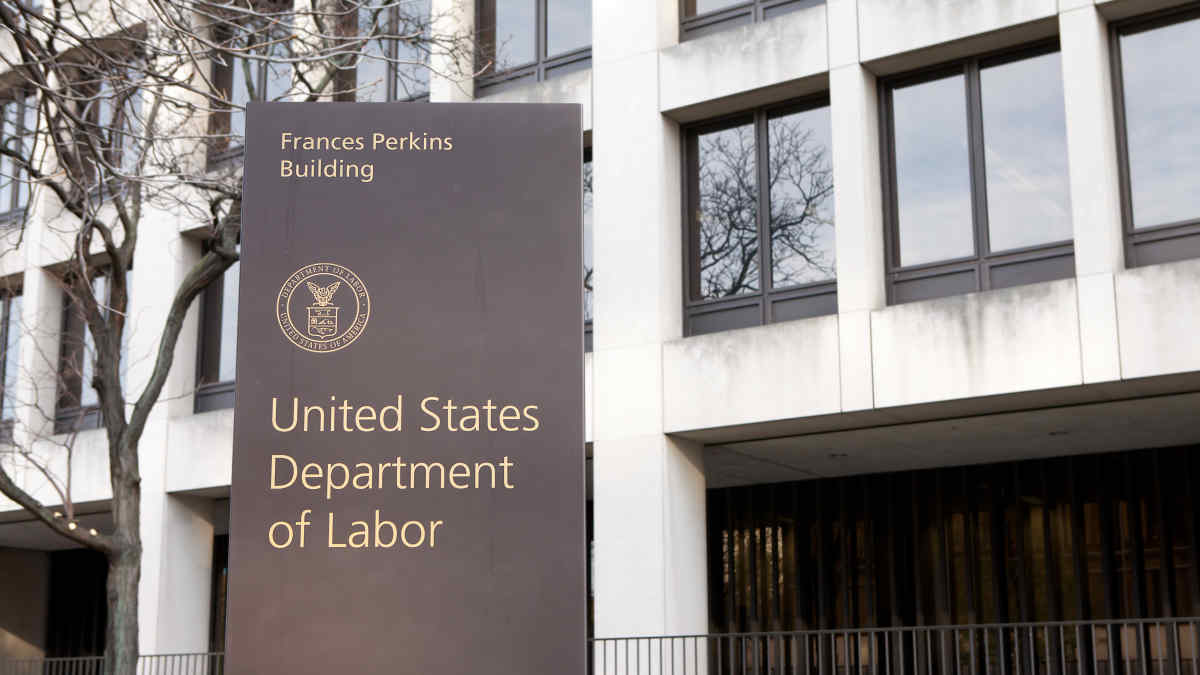

?A recent announcement from the U.S. Department of Labor (DOL) highlights the agency’s growing interest in curbing illegal provisions in mandatory arbitration agreements.
“Because mandatory arbitration is on the rise, there are more workplaces where [DOL’s] Office of the Solicitor provides the only viable avenue for meaningful legal recourse, particularly where state and local laws are weak,” the DOL’s announcement said. “As part of our focus on equity, we seek opportunities to enforce the rights of workers who often cannot do so themselves, including workers subject to mandatory arbitration agreements and class-action waivers.”
Today, at least 60 million U.S. workers are subject to mandatory arbitration, and these workers bring 98 percent fewer claims under the Fair Labor Standards Act (FLSA), compared with those not subject to mandatory arbitration, the DOL stated.
“Given the financial hurdles individuals face in bringing individual lawsuits and the fact that arbitration clauses often bar employees from participating in the more cost-effective class-actions, the DOL is announcing its intent to be more active in prosecuting” violations in arbitration clauses, said Amory McAndrew, an attorney with Hoguet Newman Regal & Kenney in New York City.
“I see this as part of a broader trend of restricting the types of claims that can go to arbitration,” said Robyn Aversa, an attorney with Jackson Lewis in Berkeley Heights, N.J.
The DOL is worried that companies are going to use arbitration agreements to sidestep federal laws, said Patrick Bannon, a lawyer with Seyfarth in Boston. “I don’t think that’s why most companies have arbitration agreements. They’re not looking for immunity from the laws. They’re just looking for more efficient ways to resolve disputes,” he said.
Related Case
On March 20, the DOL filed a class-action lawsuit, asking a federal court to force Advance Care Staffing, a New York City health care staffing company, to stop allegedly making employees sign arbitration agreements that require them to work for at least three years or pay back their wages. It also claims that Advanced Care Staffing told workers they would have to pay the arbitration fees and the company’s attorney fees.
“The problem with the arbitration provision is that it amounts to improper fee-shifting because it reduces their wages below the minimum wage,” McAndrew said.
“Federal law requires that employees be paid a minimum amount, and a lot of state laws do, too. You can’t just pay them a minimum amount one month and then tell them to pay it back the next month,” Bannon said.
The lawsuit says the company recruited a nurse from the Philippines, who felt he had no choice but to sign the arbitration agreement in order to work in the United States. The arbitration agreement defined narrow exceptions under which employees could quit before serving for three years without paying back their wages. Unsafe working conditions were not one of those exceptions.
The nurse resigned in 2022 after raising safety and health concerns related to a heavy workload. A letter from the staffing company allegedly warned that it would make him pay back more than $24,000 of his wages.
Bannon said it’s unusual for employers to try to force employees to pay back some of their wages, noting that employers should avoid agreements where workers have to give money back. “People are going to be unhappy about it. You’re kind of sticking your chin out by doing that, asking someone for a fight,” he said.
Many employers require employees to pay back their tuition reimbursement benefit if they leave within a year or two, but a fringe benefit is different from earned wages, which can’t be reclaimed in most cases.
U.S. Solicitor of Labor Seema Nanda said, “Employers cannot use workers as insurance policies to unconditionally guarantee future profit streams. Nor can employers use arbitration agreements to shield unlawful practices.”
Advanced Care Staffing did not respond to a request for comment.
Federal and State Laws
The Federal Arbitration Act (FAA) generally provides that mandatory arbitration agreements are valid, irrevocable and enforceable. It does not apply to employees who are engaged in interstate or foreign commerce.
In 2022, President Joe Biden signed the Ending Forced Arbitration of Sexual Assault and Sexual Harassment Act, which prohibits enforcement of pre-dispute arbitration agreements for sexual-harassment and sexual-assault claims.
Several states, including California, limit the types of claims that can be compelled to arbitration.
A California court recently ruled that California employers can continue to require job candidates and employees to sign arbitration agreements as a condition of employment because the FAA takes precedence over a state law.
Alternative Methods
Besides arbitration agreements, there are other ways for employers to achieve the same goal of boosting retention and resolving disputes, experts say. One option is to offer a bonus for employees who stay for a certain duration, rather than a penalty if they leave early. Another option is to use a mediator, instead of requiring employees to sign an arbitration agreement.
“Some of our clients have built in a mediation process prior to arbitration. Mediation is nonbinding, but it might weed out some of the claims before they get to the arbitration stage and cut down on the volume,” Aversa said.
Some employers prefer arbitration because it tends to be faster and less expensive than court trials, even though employers typically shoulder the cost of arbitration.
“Most of the time, employers say that they will pay most of the [arbitration] fees because if they don’t say that, they are less likely to get their arbitration agreements enforced,” Bannon said. “A judge isn’t going to enforce a one-sided agreement. It’s not a great strategy to try to make the employees pay for the arbitration, because it’s probably not going to work.”
